HBO’s ‘We’re Here’ sends Shangela, Eureka O’Hara, and Bob the Drag Queen into small-town America
The Drag Race stars are on a nationwide mission to spread the healing power of drag, one town at a time in "We're Here"

There should be a special place in the TV pantheon for beloved characters, real and fictional, who made their pop culture mark riding from town to town, helping embattled underdogs overcome obstacles. Sure, twelve seasons of doomed locals should have thought twice whenever Jessica Fletcher came knocking, but generations of fans have cheered her peripatetic heroics, along with those of the Lone Ranger, the Incredible Hulk, Michael Landon’s denim-clad Heaven-ly angel, the hulking mad Gordon Ramsey, and two take-your-pick cliques of Queer Eye guys.
These saviors arrive right on time to buck up the downtrodden or style-averse, and always leave having shown a way for folks to conquer their own struggles. Now the unlikely trio of RuPaul’s Drag Race superstars Shangela Laquifa Wadley, Eureka O’Hara, and season eight winner Bob the Drag Queen has arrived in the HBO reality series We’re Here to carry the torch for those angels in your corner who show up to save the day.

Created and executive produced by partners Stephen Warren and Johnnie Ingram, We’re Here follows the three queens to small towns across America, from Gettysburg, Pennsylvania, to Ruston, Louisiana, where they take largely inexperienced drag daughters under wing to mold into captivating, confident performers. It’s Smoky Eye for the Straight Guy — and for a few gay men, and straight women, and at least one ex-gay-and-born-again Christian, plus the adorable queer couple of trans man Brandon and his wife Mikayla in Twin Falls, Idaho.
Each episode, directed by Peter LoGreco, closes with a fully staged drag extravaganza, featuring Eureka, Bob, and Shangela supporting the homegrown talent. Meanwhile, throughout each episode the lead queens, in and out of drag, support their respective protégés by listening, coaching, and offering them the tools to tell their stories through the art of drag. Those stories, edited into tidy narratives of personal triumph, or struggle against persecution, can be disarmingly poignant and moving for an otherwise campy adventure that opens each week with the queens rolling into town inside Bob’s giant Purse-First wagon, Eureka’s Elephant Queen on Wheels, and Shangela’s Halleloo Express.
The colorfully tricked-out show cars, customized to the queens’ catchphrases, exemplify the show’s over-the-top, high drag sensibility — and the producers’ commitment to a great visual, since, as Bob confesses to Metro Weekly, neither he nor Eureka has a driver’s license. “Eureka and I cannot legally drive those vehicles, and I don’t know if [they’re] actually road safe, so there was like a whole process to being legally allowed to drive those vehicles on the road.”
All showmanship aside, We’re Here keeps the emotions real in its down-to-earth storytelling about queer and queer-friendly folks in the heartland trying to connect with their families or just find a community. For many of them, like episode two’s Brandon and Mikayla, former high school sweethearts from strict Mormon families, the road to some form of acceptance has been tumultuous. Others, like conservative Pennsylvania mom Erica in episode one, or cowboy hat-sporting Clifton in Twin Falls, hope to atone for their past homophobia or intolerance.

In each case, the goal is to show change through laughter, tears, music, and sequins, and with a minimum of typical reality show manipulation. “No,” Eureka says, “there was no producing [behind the scenes]. That’s the thing about the show, is we just kind of let people tell their stories and tell their truth.”
That truthfulness was Warren and Ingram’s intent for the show from the beginning, Eureka says, recalling the producers’ first pitch. “The message was really just about showcasing people’s stories and we weren’t going to come in and just fix all their problems and put a nice big bow on the end. It was going to be real-life stories and give people a chance to start their journey, versus trying to fix it. That’s what I hate about some makeover shows — it’s just like, ‘Oh we’re going to come in and make you beautiful and now we fixed everything.’ But that’s not how life works.”
Eureka, Bob, and Shangela bring their own truth to the show, especially since each grew up in rural America, and have experienced journeys of finding their community. Having a chance to reflect that experience was a large part of the appeal for Shangela, who says, “It resonated with me because I’m originally from the small town of Paris, Texas. So I know what it’s like being in that environment where you feel different, when you feel like you may be the only one like you, that you don’t have a huge community of support where you can just really feel free to be yourself. I wanted to be a part of telling that experience to more of the world, and also bringing some joy and some light to it, hopefully. And helping them to see that maybe we can even unearth a community of support in a place where they didn’t think one existed.”

A New York City resident for the past 12 years, Bob, originally from Columbus, Georgia, recalls the sense of isolation that came with feeling like “there was no one like me where I was from, that I was the only person doing what I was doing. There was just no other queer people. And I personally felt like I had to get out of my small town.” Due in part to shooting We’re Here all over the country, and witnessing how queer culture blossoms in even seemingly hostile environments, he says, “Now I look back and I realize that there actually probably was a community there, thriving and existing, just small. And I actually wasn’t alone the whole time I thought I was alone.”
Queer visibility, the freedom it affords, and the confidence it inspires are pivotal aspects of We’re Here, and the message the show transmits.
“Growing up in Paris, Texas, when I was a young kid, there was not a gay community, not a visible one,” Shangela recalls. “I’m sure there were gay individuals. I’m sure there were probably even gay gatherings, possibly. But I never knew about any of them because it wasn’t very visible. And being gay was something — most people, at least that I knew, didn’t really talk about it. There wasn’t a local bar or a local club or a recreation center where you could go and be amongst the gays. And so I felt like, possibly, there is no support here. It didn’t feel safe to me to go seeking that support because I didn’t see anyone else doing it.

“But now when I come back, I see so many more gay people. I’m like, ‘Where did all these gays come from?’ There’s more people that are comfortable being more open about their sexuality or their gender identification or just being gay. And I love that, so I feel even more connected to my community. And I think, ‘You know what? Maybe there was a community here, pockets of people here, that I could have leaned on.’ But I didn’t feel empowered enough and there was nothing to bring us all together. That’s why this show, I think, is very important. Not only for the participants, but for people watching, to know that there might be a community of support, allies, right around the corner from you. You just don’t know it. And here comes Bob, Eureka and Shangela to help bring them on out.”
Shangela and Bob describing lessons learned off-camera mirrors the vulnerability that all the queens show on-screen, too. In one heartwarming scene, while mentoring Christian mom Erica, Eureka opens up about dealing with the death of their mother, who passed away only a couple months before production began on the show last summer. “Honestly, it was a little emotional,” Eureka says of getting out on the road to play fairy dragmother in the midst of that loss. “But I definitely think that what pushed me was knowing how much my mom would appreciate and love the project that I was doing.”
Eureka was able to draw from that emotion while forging a connection with Erica, who hopes to make amends with her estranged lesbian daughter, Hailey. “I think it ended up just being a really good way to approach the idea and the project, and really relate with Erica, too, and her daughter, by being able to be honest and open about what I was going through.”

Each of the three queens, a sort of Charlie’s Angels of drag, brings their own individual style and je ne sais quoi to molding their various drag children. True to her well-cultivated rep as the ultimate professional, Shangela, ever gregarious and down-home friendly when getting to know the locals, turns into a stern taskmaster when it comes time to plan and rehearse a show.
“I bring to those rehearsals what I’ve always brought to myself from the inside, and also what I’ve learned,” says Shangela. “Jenifer Lewis, who’s a great friend of mine and mentor, whenever I’m doing something, she says, ‘All right honey, no half stepping, it’s always full out.’ That’s what I kind of go with, that mentality.” The hard work pays off with some breathtaking, high-energy performances on the show, including Shangela’s double-time dance team up with drag daughter Alexia in Branson, Missouri.
“I push them because I want their best,” says Shangela. “I want them to be committed, I want them to trust me and I want to trust that they’re going to do the work to turn it out. And I have to let them know that, ‘I might be your mean mama today. I’m just letting you know, I’m a sweet person, you’ve met me, you know me, we’ve hung out, but today in these rehearsals, I’m a professional, so get ready because I’m going to need you to be the same.'”
Bob’s approach is more laid back — a bit less Debbie Allen and a tad more Oprah. “Well, I don’t know where I fit in terms of people who already exist,” Bob quips about his mentoring methods. “But I like to listen to what they have to say. I like to hear their ideas and their performance. I like to hear what they’ve experienced in their lives if they want to tell a story through their drag. And if so, then I try to just cultivate them basically the same as I would treat my real-life drag daughters that I work with in the city, the people that are actually looking to have drag careers.”

In fact, Bob has helped groom a number of drag daughters with professional careers, including Drag Race season 10 standout Miz Cracker, Honey La Bronx, Judy Darling, and Free (The Drag Queen), to name a few. “This is from like years ago in New York City, before I had my tubes tied,” he jokes.
Eureka has birthed their share of drag children, too, back home in Tennessee, and was just as eager to help their We’re Here children harness the power of drag. “Before drag, I was a lot more introverted,” says Eureka. “Drag helped me become a voice and use my loud voice, and be okay with it. I used to be very ashamed of being super hyper and outgoing and I would hide from it. But now I just celebrate it.”
As Shangela notes, “That’s why we talk about drag being transformative. It’s because you see yourself outside of yourself and you start to realize where you can go by just adding a little extra sparkle. Adding this layer of armor, whether it’s the makeup, or it’s the costume, or it’s the hair, or it’s just the stage itself and how the lights kind of take you out of who you are, and put you into who you want to be.”
The trick, Bob says, is that it’s “not really about the drag. It has nothing to do with the drag…. You’d think when you watch Little Shop of Horrors, it’s about plants, but it’s not actually about plants, it’s about greed, it’s about desire and about feeling unseen. So drag is just the vehicle that we’re using as an opportunity. It’s a nice way to distract you from guarding yourself because you have your mind set on something else. So I don’t think that this is something super specific to drag. It just happens to be that we’re drag queens.”
And, as Eureka points out, part of the power of drag is that it doesn’t just transform the queen wearing full nails, hair, hips, and heels. “It’s the way people react to you when you’re in drag. Everyone’s like, ‘Oh my God, you look fierce. You look amazing. That’s incredible.’ It’s the positive feedback that we get from other people. That gives you the confidence in drag and in this persona. So no matter who you are, once you get in drag, you just feel that, because people naturally treat you differently and treat you that way. But then also because you feel so beautiful and glamorous and gorgeous or like this other entity, that also brings out a part of you that’s a part that you didn’t know was there.”

Watching Shangela, Eureka, and Bob guide regular folks towards such strength and self-acceptance could prove to be not just entertaining, but a genuine comfort to an audience that’s been sheltering in place at home for weeks. And now that those who cared to indulge in Tiger King have had their fill, it seems an apt time for viewers to cross this rainbow bridge into red-state America for a look at good people living out their fantasies of glamour and fierceness.
Like most of us, the We’re Here stars have been locked down as well, albeit in different parts of the country — Bob in NYC, Eureka in L.A., and Shangela with her grandmother in Paris, Texas, at the home Shangela just bought for her. Cast and crew of the show have been off the road for several weeks now, having wrapped production on season one just before the coronavirus pandemic shutdown production everywhere.
Sheltering at home with his partner, Bob has been busy doing press for the show, adding, “I talk to my friends every day. I keep myself creative. I make sure that I have projects every day, so that I’m not just waking up and looking at myself. I also take free time to play video games and call my friends and call family and make sure that everyone is keeping themselves sane as well. Checking in on people I love.”
Eureka credits doing press for the show with helping stay sane during this moment of uncertainty. “I mean, honestly for me, it’s keeping me busy and going, so I’m actually kind of blessed, because at least I have things to really work on and focus on. A lot of entertainers right now are left with not much to do because they travel and that’s how they work. So I’m actually just really blessed to have a project that takes extra work from home and all these things to keep me busy, besides my personal stuff that I’m working on.”
The extended lockdown has left Shangela ample time to consider the breadth of her journey on the show.
“Oh, my gosh. I walked into this thinking that I just knew exactly how this was going to go. But going through this experience from the first city to the last one, I just learned to reconnect with an experience that I thought that I was a little more removed from. I thought as a community, that we have progressed in America, that it’s pretty good to be gay these days. And maybe that’s because — even though I grew up in a small town, I know what those challenges and hardships look like — I’ve been traveling the world and being celebrated and celebrating others at prides and participating in that.

“So to come back to small town America — and some places were very loving — but it was those moments when you realized that hate, discrimination, stigma, all those things still exist. And a lot of these people who lived in these small towns, a lot of my drag daughters dealt with these hardships, these challenges, every day. And as far as we’ve come in this country, we still have some work to do and we still have some people that we just need to give more of a touch point of our life to.
“Sometimes you can change people’s minds and opinions just by them knowing a person from a different community than theirs. And a lot of the places we went to were not very diverse, they were not racially diverse, they sure as heck weren’t gender-identity and sexuality-wise diverse. So it’s important for us to be out there and do that, and I relearned, it was a sobering reality and a reintroduction to what life is like in a lot of places in America, when we need to do better.”
For the most part, despite the lack of diversity they encountered, the We’re Here queens were greeted warmly at every stop — although not always. “They actually edited out some of the times we got the cops called on us,” says Bob. “We got the cops called on us three times in Branson. They only showed once, [maybe] twice. I can’t remember. I felt pretty safe everywhere I went, but also my circumstances are much different. To be fair, my circumstance was not that of a normal queer or drag queen walking around. I was a queer walking around Branson, Missouri with a camera crew of about 30 people. So I never genuinely felt unsafe, but I imagine if I was there under different circumstances, I might be singing a different tune.”

Perhaps those less tolerant Bransonites will be singing a different tune after seeing the love, support, and sincerity the stars, participants, and producers have poured into the series. “We’re giving people a new start, a place to start, really,” says Eureka. “We’re showing these queer folk and the people in the town that there are more resources and support than they may even realize.”
The whole point of closing each episode with a spectacular drag performance, says Eureka, “is that’s our opportunity to showcase the hard work they’ve done, one, but also [show] just how much support they have in a town where they feel like they have to hide. ‘Look at the turnout that comes to support you all. You don’t actually have to hide. There’s a lot more people on your side than you realize.’
“I think that’s the change that we’re implementing and working on, is just to change your idea about your town. Just because it’s a small town doesn’t mean that you have to hide. You have the option to be yourself. You just have to be brave enough, and fight the insecurities and the stigma, and find your tribe in that town and really celebrate it.”
We’re Here premieres Thursday, April 23 on HBO, and airs Thursdays at 9 p.m. Visit www.hbo.com.
Support Metro Weekly’s Journalism
These are challenging times for news organizations. And yet it’s crucial we stay active and provide vital resources and information to both our local readers and the world. So won’t you please take a moment and consider supporting Metro Weekly with a membership? For as little as $5 a month, you can help ensure Metro Weekly magazine and MetroWeekly.com remain free, viable resources as we provide the best, most diverse, culturally-resonant LGBTQ coverage in both the D.C. region and around the world. Memberships come with exclusive perks and discounts, your own personal digital delivery of each week’s magazine (and an archive), access to our Member's Lounge when it launches this fall, and exclusive members-only items like Metro Weekly Membership Mugs and Tote Bags! Check out all our membership levels here and please join us today!






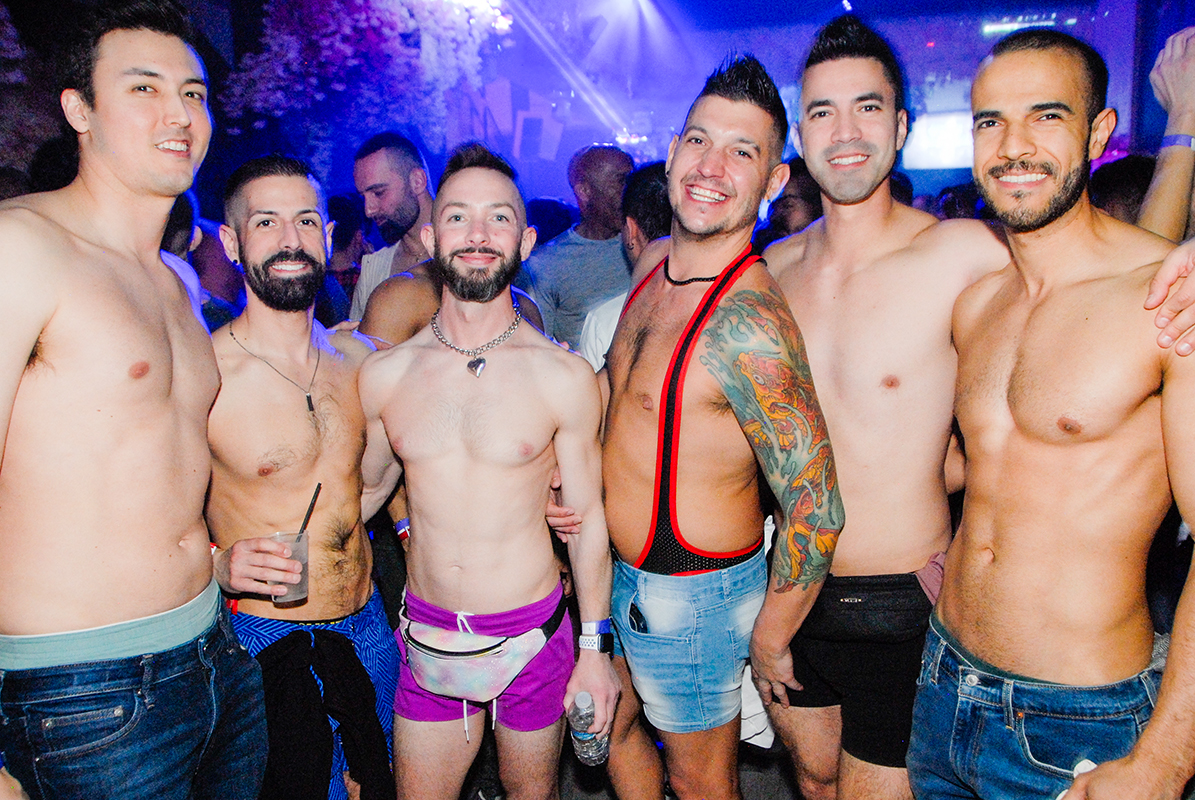
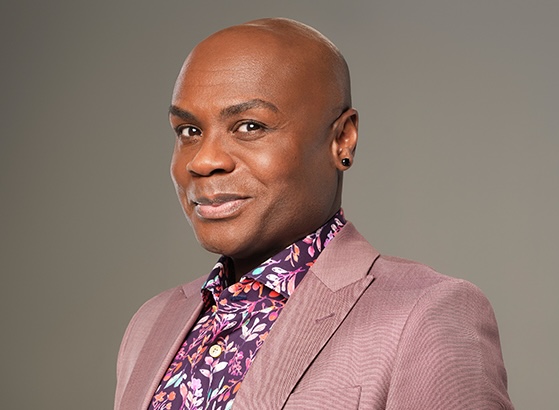
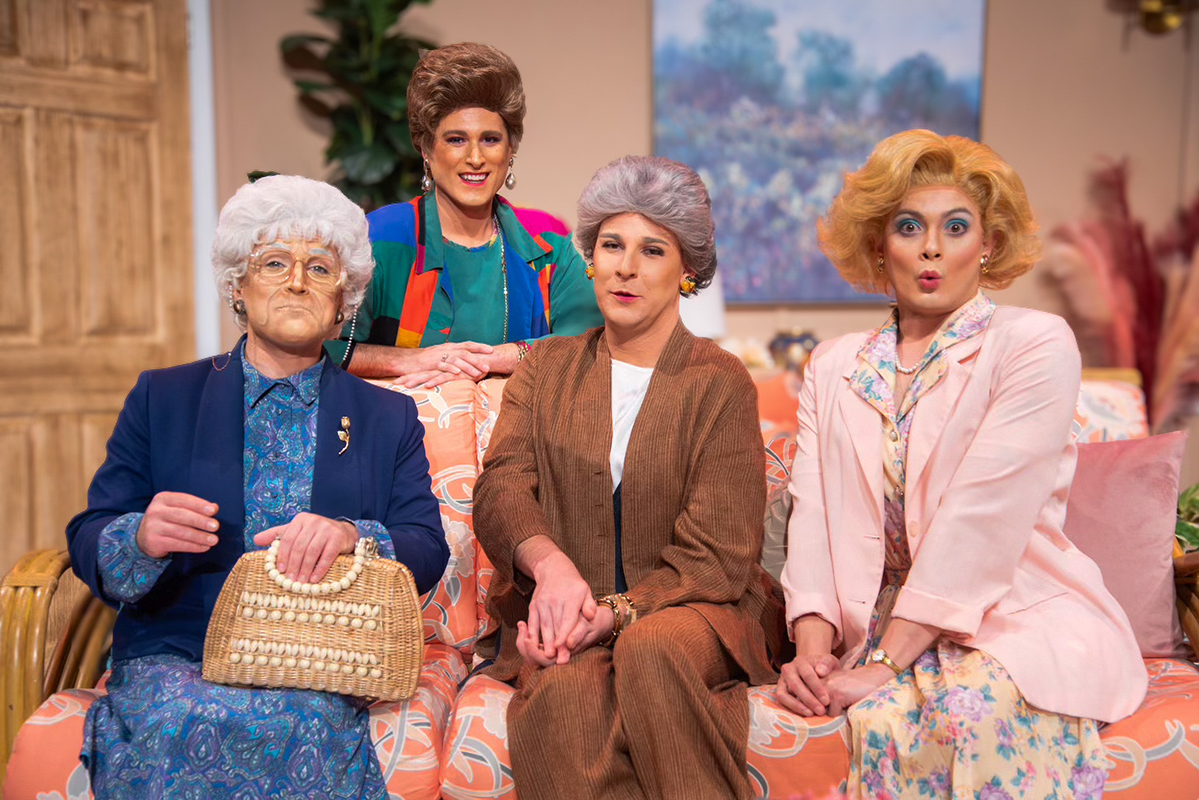













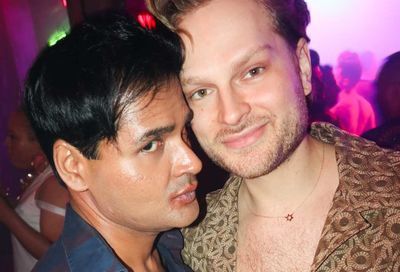
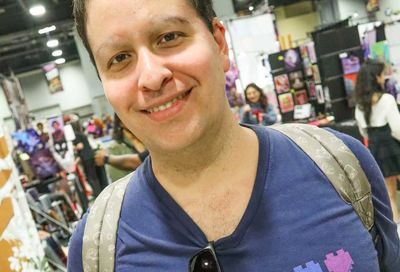
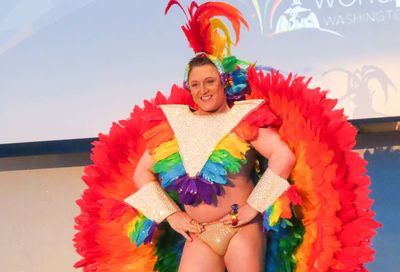
You must be logged in to post a comment.